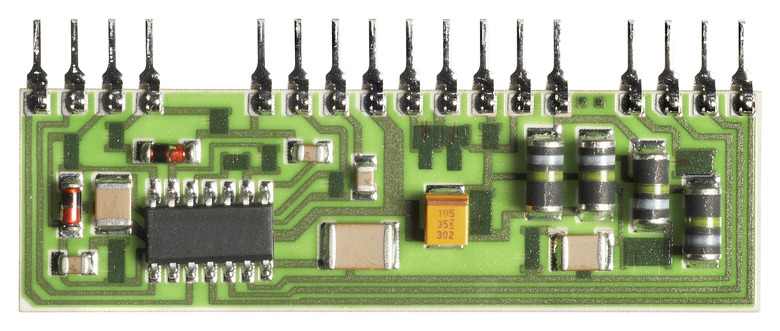Electronics Projects Using 4047 Or 4027 IC
Electronics experimenters are always looking for innovative ways to use integrated circuits (ICs) or "chips" in electronics jargon. Engineers design chips to be versatile, so they can be used in millions (literally) of applications. Two such chips are the 4047 and the 4027 ICs. They can be configured in wired in an almost infinite amount of circuitry, and experimenters are only limited by their creativity.
Understanding the 4047
Understanding the 4047
The 4047 series of chips are astable / monostable multivibrators. Multivibrator means the output is a square wave. A square wave has definite on and off times, so it looks like a series of squares on an oscilloscope screen. Astable means when you turn on a switch wired to the chip, called a trigger, the chip produces an output. When you turn off the trigger, the output stops. Keep in mind the trigger may be electronically controlled by other circuitry. Astable means it produces an output all the time, without a trigger.
4047 Applications
4047 Applications
Literally millions of projects exist for the 4047. Because it produces a very precise timed square wave output, it can be used as a reference or calibration wave. Many timing circuits can be triggered by a 4047. Some examples would be frequency counters, frequency doublers or dividers, and time delay circuits. Suppose you want an automatic door to open, stay open for three minutes and close. A 4047 could be used in the timer circuit to control other electronics that control the motor on the door.
Understanding the 4027
Understanding the 4027
The 4027 series is a dual J K flip-flop. Dual means there are two flip-flops within the same housing. A flip-flop is the basis for all computer memory circuitry. It has four inputs, a "J," a "K," a "Set" (S) and a "Reset (R)." It has two outputs, called Q and Q-not. Q and Q-not are opposite of each other. If a voltage is present at Q, no voltage appears at Q-not, and vice versa. Depending on how the inputs are configured, the outputs at Q and Q-not remember the last state they were in. A computer has literally millions of flip-flops all interacting with each other.
4027 Applications
4027 Applications
All digital circuitry depends on the basic building block of the flip-flop. The 4027 is really a training chip. Most computer chips have tens of thousands of flip-flops housed within a singe case. By wiring LEDs to the inputs and outputs, you can see for yourself how a flip-flop works. Some simple circuitry you could build with flip-flops could be a numerical display driver, or a ripple binary counter. A ripple binary counter is a counter that displays, on a numerical display, every input pulse. For example, people going through a turnstile could trigger either the J or the K input.
Cite This Article
MLA
Oldhand, Tony. "Electronics Projects Using 4047 Or 4027 IC" sciencing.com, https://www.sciencing.com/electronics-projects-using-4047-4027-ic-10007106/. 24 April 2017.
APA
Oldhand, Tony. (2017, April 24). Electronics Projects Using 4047 Or 4027 IC. sciencing.com. Retrieved from https://www.sciencing.com/electronics-projects-using-4047-4027-ic-10007106/
Chicago
Oldhand, Tony. Electronics Projects Using 4047 Or 4027 IC last modified March 24, 2022. https://www.sciencing.com/electronics-projects-using-4047-4027-ic-10007106/
